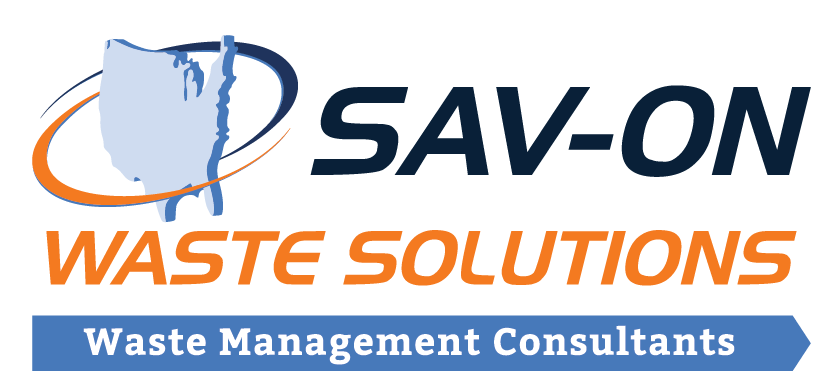14 Mistakes to avoid with Medical Waste Disposal.
Before we discuss how to reduce Medical waste disposal costs we must understand what Medical Waste consists of. Medical Waste Disposal, is commonly classified as any item that comes into contact with body fluids or organs. Specifically, it is any solid waste that is generated in the treatment, diagnosis or immunization of human or even animals in some cases. This type of waste is no longer disposed of like normal commercial trash or recycling because the process was found to spread disease and was a liability for health care facilities, senior care communities, etc.
Today, the red biohazardous containers and bags seen throughout hospitals and medical offices are used to safely handle sharps, needles, and catheters that contain any bodily fluids. Medical waste also includes paper towels, wipes, gloves, syringes without needles, bandages or dressings with small amounts of dry blood or fluid, and other materials from medical care operations. Syringes with needles or sharp objects that can pierce through things require a special storage container for additional protection and safety.
Since its considered biohazardous for the environment and the general population, this waste cannot be disposed of with everyday trash and recycling. Licensed medical waste management companies must collect the discarded medical waste materials and make it safe before incineration or recycling.
The disposal of your medical waste is getting more expensive be sure you’re doing things correctly and as cost efficiently as possible. It not just an auto-pay bill! If it feels like you’re being charged too much or your annual increases exceed the annual CPI, you need to take charge with a cost audit or hire a professional to perform one. The good news is that many money-saving techniques and waste consultants are available to help you reduce your monthly costs and increase your bottom line. It might take a little extra planning and effort, but reversing your expensive disposal mistakes can save you thousands of dollars every year per location.
14 mistakes to avoid with Medical Waste Disposal
- Not hiring a waste consultant: Conduct a medical waste expense audit of your invoices, contracts, systems, and equipment every 3 years. It’s impossible to be an expert in everything, hire a waste / medical waste consultant to conduct a risk-free review to identify billing errors and identify cost savings options. Cost contingent consultants like SAV-ON Waste Solutions will continue to review your billing into the future as well. Another option is to hire an attorney or hourly consultant to review your contracts to help save you more money in the long run.
2. Improper packaging of medical waste: Infectious waste must be stored for transportation in containers that meet the DOT’s requirements. Always make sure you are using the correct container type with a DOT stamp of approval on them. These containers are leak-proof, tamper-proof, spill-proof, puncture resistant and reusable.
3. Improper transportation of medical waste: Unless you are transporting less than fifty pounds of medical waste, you need a permit to haul the waste, even if it is packaged in approved DOT containers. Many businesses fail this requirement in two areas: 1) They transport their waste to a disposal facility without the permit; 2) They haul waste in improper containers. Applying for a permit is expensive and requires hours of training classes, which is why more companies outsource disposal.
4. Spent waste needs a special container: Everything changes once a product is labeled “waste”. Therefore, the package a product was shipped in is no longer acceptable for transporting the product once it becomes waste. You may need a more rigid hazardous waste shipping container. Check with your medical waste disposal consultant to choose the right container for your waste.
5. Placing waste in the wrong containers: Mistakes happen. There’s no waste mingling. As a rule of thumb, the higher risk a type of infectious waste poses, the higher standard of container you need. General waste breakdown:
-Sharps (anything used for injecting, cutting, penetration, etc.)
-Anything liquid, leachable, and flakey) must go into a Red Bag
-Pills must be disposed of in a sealed plastic container.
6. Improper manifesting of medical waste: The DOT performs an audit on the hospital, now it’s a priority. At this point, the DOT is going to ask who signed the manifest for waste removal and want to see all the training documents proving qualifications were met. Having a service company haul away your medical waste is not like receiving a Fed Ex package – you can’t simply sign a manifest and go on your way. Whoever signs the manifest for waste pickup must have had the proper DOT training. Good advice: Find a medical waste disposal company that allows you to sign an agency letter, which transfers most of the liability to them.
7. Your organization does not follow DOT guidelines: From correctly packaging waste for transporting to manifesting the entire medical waste disposal process, there are many rules you must follow to comply with the DOT guidelines. Penalties for failing to comply with DOT guidelines can cost you up to $15,000 per violation per day.
8. Your organization does not follow State Guidelines: In addition to DOT guidelines, the Department of Natural Resources or other state agency has a set of strict rules for proper medical waste disposal. The State can check your compliance during an audit. If you are audited and found to be non-compliant with the state or federal guidelines, penalties can be as much as $10,000 to $25,000 per violation per day.
9. Your organization does not use an MWRS Sharps program: If you dispose of a small number of Sharps, MWRS kits are a great way to meet shipping requirements. Once you fill a container, you ship it to a medical waste disposal company, who will alert you when they receive it (for manifest purposes).
10. You don’t use a Sharps return program: While not every city or county runs a Sharps return program, they can save you even more money. You don’t even need to pay shipping. You simply drop your container off.
11. You don’t segregate waste: Mixing your infectious medical waste with non-medical waste is a common mistake that increases your disposal costs.
12. You don’t consolidate waste: If your business includes multiple locations, consolidate the waste into one disposal event instead of calling a service to remove waste from each site.
13. You dispose of waste too frequently: Gas and man-hours are expensive, the more often a service picks up waste from your facility, the more money you pay.
14. You’re getting ripped off by hidden fees: Any time you solicit a medical waste disposal company, be sure to ask them about any additional fees on top of the quoted price. Have your consultant suggest amendments to the service agreement to protect you for the future as well.


 Follow
Follow
